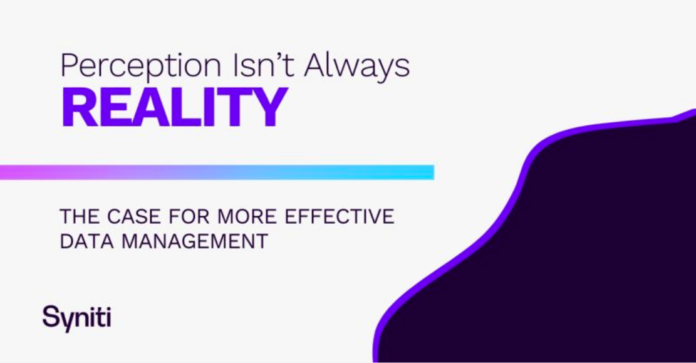While data is a clear focus are for C-level executives, there are still organisational disconnects in terms of execution and many still struggle with usable data, according to new research from HFS Research and Syniti.
The is based on a survey of more than 300 senior level executives at mid-to-large size enterprises across the globe. In the Asia-Pacific region, respondents came from Singapore and Australia.
The report provides valuable insight into key data trends across the globe, and how Asia Pacific fares globally when it comes to data.
Findings show that in Singapore and Australia, more chief executive officers are setting the organisation’s data objectives, in comparison to chief digital or data officers.
For majority of the companies in Singapore and Australia, the CEO is setting the data objectives (58%), but the chief digital and data officers are owning them (60%).
Globally, the CEO sets the data objectives for 46% of companies and owns the data objectives for 35% of the companies. The chief data and digital officers play a smaller role in the overall management of data objectives.
Also, most organisations in Singpore and Australia have a centralised, company-wide data management strategy.
Among them, 70% have fully implemented data management and 90% have a centralised company-wide data management strategy.
Globally, 73% of companies have implemented a centralised company-wide data management strategy.
In addition, cross-functional, centralised governance is accelerating, with 60% of respondents in Singapore and Australia have a governance office or team that supports cross-functional data governance, and 46% have a proactive governance model.
Worldwide, 44% of companies globally have a governance office or team that supports cross-functional data governance, while 19% of companies are still in the process of defining their governance framework.
Further, usable data remains a challenge, with 58% of respondents in Singapore and Australia saing that up to 50% of their data was bad or not consumable.
Globally, while 80% of respondents said they trust their data, the same group said only 60% of the data is actually usable.
The findings of the report reveal that Singapore and Australia together are leading the charge when it comes to overall data management and governance, which are more centralised in comparison to global counterparts.
This may be a function of the chief executive officer setting the data objectives and more involvement by the chief digital or data officers.
At the same time, however, challenges prevail—in particular, data quality and usable data.
In APAC, one of the reasons cited for bad data includes inconsistent taxonomy in different operations. Globally, respondents cited a lack of governance and monitoring as the main factors to blame for bad data.
The good news is that nearly all respondents realise the value of data quality in driving business outcomes. Overall, 95% of executives believe that their companies would be more competitive, more innovative, and able to make faster decisions if their data quality were two times better—and data management is crucial to getting to this point.
















